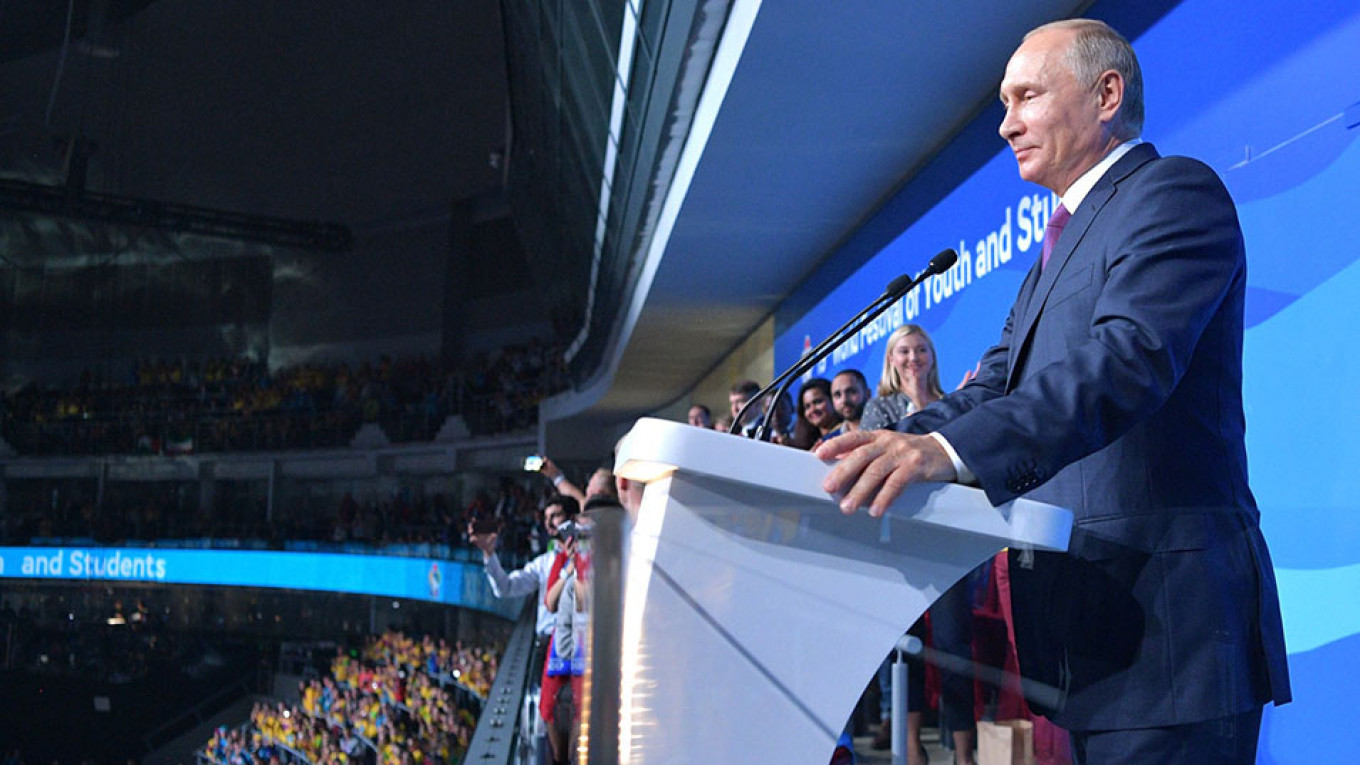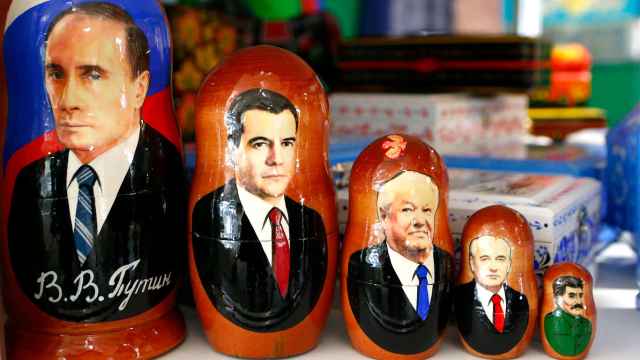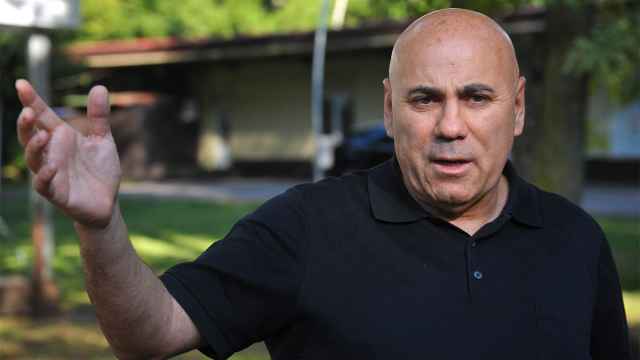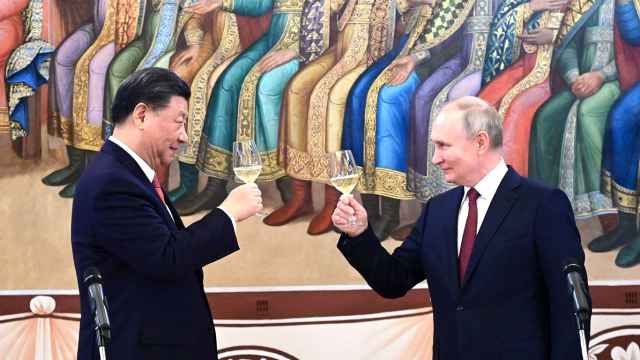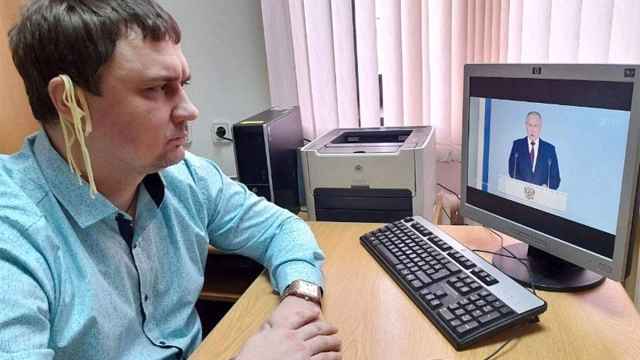There are probably no universally accepted criteria for professional success. Can you compare basket weavers with basketball players?
Janitors with jailers? Farmers with pharmacists? Of course not. But you can ask whether people have fulfilled their professional duties well and reached the goals they have set for themselves. The same is true of political leaders, so it is interesting that no one has ever evaluated President Vladimir Putin in this way — that is, by asking if he has achieved all that he set out to accomplish.
Putin turned 67 last week. Even according to the legal retirement age — that he recently raised for both men and women — Putin could have stepped down and begun drawing a pension two years ago. Now is a good time to look back and assess exactly which game he has been playing all these years and whether he has “won.”
To put this in the proper context, we’ll time travel back to the 1970s Soviet Union under Brezhnev. The country is in the grip of political and economic stagnation. The borders are closed. Almost every career is a dead-end — except with the KGB, which is exactly where a young Putin enlists. Corralled into tiny apartments and holding little hope for the future, Russians drink heavily and distance themselves in thought and word from their leaders. With a growing paucity of goods on store shelves, the communist dream rings hollow and false.
Young adults feel these injustices most acutely. Putin is just 20 years old in 1972, the same year his peers take to the streets of Moscow shouting first “Let us in” and, later, “Let us out.” Putin, like everyone else at that time, understands perfectly well what is happening.
Political scientists often claim that Putin wants to return the country to Brezhnev’s stagnation. Some say he already has. However, I think Putin has been trying to lead Russia into the bright future envisioned by those Brezhnev-era youth.
Let’s take a look at what the Soviet youth of the 1970s were lacking, and what it was they wanted.
They wanted open borders and the ability to see the world. We have that.
They wanted goods on store shelves. Russians now enjoy that — in abundance.
They wanted to be able to run a business and accumulate wealth without having to hide it. That is now commonplace.
They wanted at least a modicum of free speech and press, along with elections in some form. Although the value of today’s elections is highly debatable, Russians — if they are cautious — can express any position they want on the issues.
For Soviet youth of that period, what they saw in the countries of Eastern Europe represented the most immediate and yet unattainable goal — small businesses, well-stocked stores, the freedom to travel abroad, and multi-party systems — albeit under the control of rulers. We can even speculate that Putin’s vague dreams became more concrete during his work-related visit to Dresden, Germany in the 1980s.
Thus, if all this time Putin has been trying to build the new and improved Soviet Union that Brezhnev-era Komsomol youth had dreamed of seeing one day — one that was very similar to East Germany — then we must admit that he has more than succeeded. He has met all of the main criteria, and from the viewpoint of someone living in 1972, today’s Russia looks very impressive.
On the other hand, today’s youth take it all for granted — everything from the endless varieties of sausage to the flights to Berlin and beyond. And they have their own vision of Russia’s bright future. This conflict of paradigms causes the insurmountable gap that will continue to fuel protests. Putin sees these youth as spoiled good-for-nothings, while they view him, with his Brezhnev-era dreams, as a hopeless throwback.
A Message from The Moscow Times:
Dear readers,
We are facing unprecedented challenges. Russia's Prosecutor General's Office has designated The Moscow Times as an "undesirable" organization, criminalizing our work and putting our staff at risk of prosecution. This follows our earlier unjust labeling as a "foreign agent."
These actions are direct attempts to silence independent journalism in Russia. The authorities claim our work "discredits the decisions of the Russian leadership." We see things differently: we strive to provide accurate, unbiased reporting on Russia.
We, the journalists of The Moscow Times, refuse to be silenced. But to continue our work, we need your help.
Your support, no matter how small, makes a world of difference. If you can, please support us monthly starting from just $2. It's quick to set up, and every contribution makes a significant impact.
By supporting The Moscow Times, you're defending open, independent journalism in the face of repression. Thank you for standing with us.
Remind me later.



